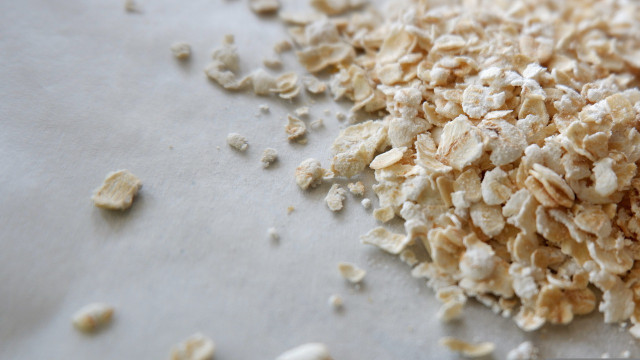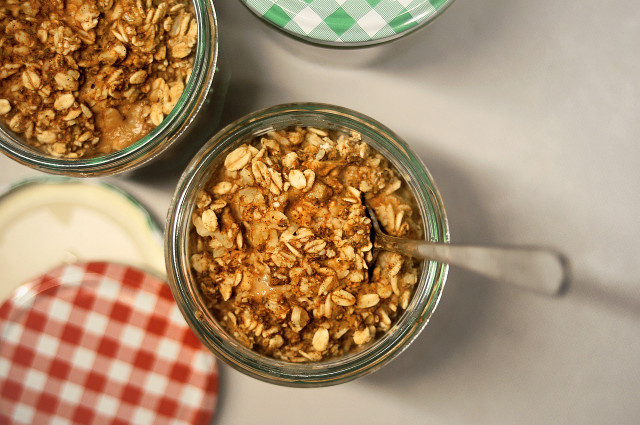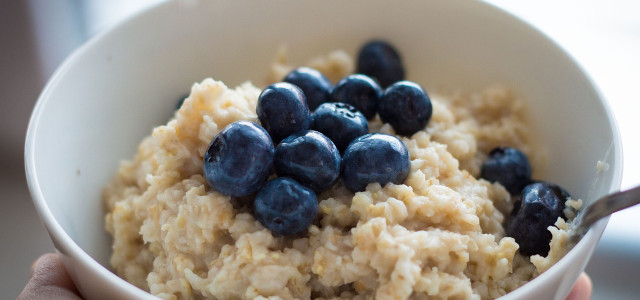Some pantry staples seem to last forever. Does oatmeal go bad? Are there any differences per type of oatmeal? We’ll answer these questions and fill you in on how to store your oatmeal to extend its shelf life!
Does oatmeal go bad? There are some foods that never expire, but is oatmeal really one of them? Oats are one of the most versatile and inexpensive whole grains, whether you prefer overnight oats, vegan baked oats, homemade oatmeal cookies, or another one of the endless variations. We’ll show you how to tell when your oatmeal is expired, what type of oatmeal will last the longest, and provide you with some handy tips for storing this all-time favorite food.
1. Do Oats Go Bad and How Can I Tell Whether They Expired?

Generally speaking, dry oatmeal has quite a long shelf life. But after a few years or if stored incorrectly, it can actually go bad. Just refer to the simple checklist below:
- Check the Expiration Date: This may seem self-explanatory, but checking the expiration date gives you a good general sense of how much longer you can keep your oats in the cabinet. At the same time, you should keep in mind that this date is often just seen as a suggestion rather than a hard cut-off — many other factors influence whether the oats have actually gone off.
- Inspect the Color and Texture: Are there any dark or light spots or clumping? Does the consistency feel different than usual? Check your oatmeal for any unusual appearance.
- Smell Your Oats: Oatmeal naturally has a nutty and slightly sweet scent to it. If you detect a bitter or unfamiliar smell, be aware: It might be because your oatmeal is expired.
2. Which Type of Oatmeal Has the Longest Shelf Life?



There are many different kinds of oatmeal, and product lifespans vary. We’ve summarized the most important ones for you:
- Instant oatmeal often contains artificial flavoring, fruits, or cream, which reduces its shelf life. These packets will usually go bad after approximately six to nine months.
- Most oats you can get at the store are commercially processed. That means they pass through different procedures like husk removal, rolling, steaming, and toasting. Such processes stabilize the oats and make them last longer. They will typically stay good for up to five years.
- It’s different for organic, unprocessed oats, which are not stabilized and will go bad faster. But don’t worry; storing them properly in a cool, dry place can keep help prevent your oatmeal from going bad as long as possible.
- Pay attention to storing cooked oatmeal. Once you’ve prepared it, you can keep it in your fridge for four to six days. You shouldn’t leave it at room temperature for longer than two hours to prevent unwanted bacteria from growing.
- There’s also a difference between steel-cut oats and rolled oats. While steel-cut oats typically last three to five years if stored properly, rolled oats expire a bit faster at around one to two years.
3. What’s the Best Way To Store Oatmeal To Maximize Its Shelf Life?



Once you’ve opened a package of oats, the best way to keep your dry oatmeal from going bad is by storing it in a sealed, airtight storage container. This is important because you don’t want air to come into contact with your oats. They could become moist and eventually grow mold. In addition, the container will hinder sunlight from coming in and prevent any possible UV damage.
When choosing a container, try looking into eco-friendly and plastic-free storage boxes (available on Amazon**). Place your container in a cool, dark place — your pantry, kitchen shelf, cupboard, or even your fridge or freezer. This will maintain the freshness and quality of the oats for as long as possible. Make sure to also check out our article on keeping your produce fresher for longer, to get some more useful tips for food storage.
Read More:
- Old Fashioned vs. Quick Oats? The Difference Explained
- 6 High Protein Vegan Breakfast Recipes To Give You Energy For the Day
- Homemade Oat Milk: A Simple & Sustainable Recipe
Do you like this post?








